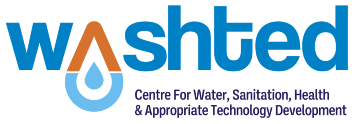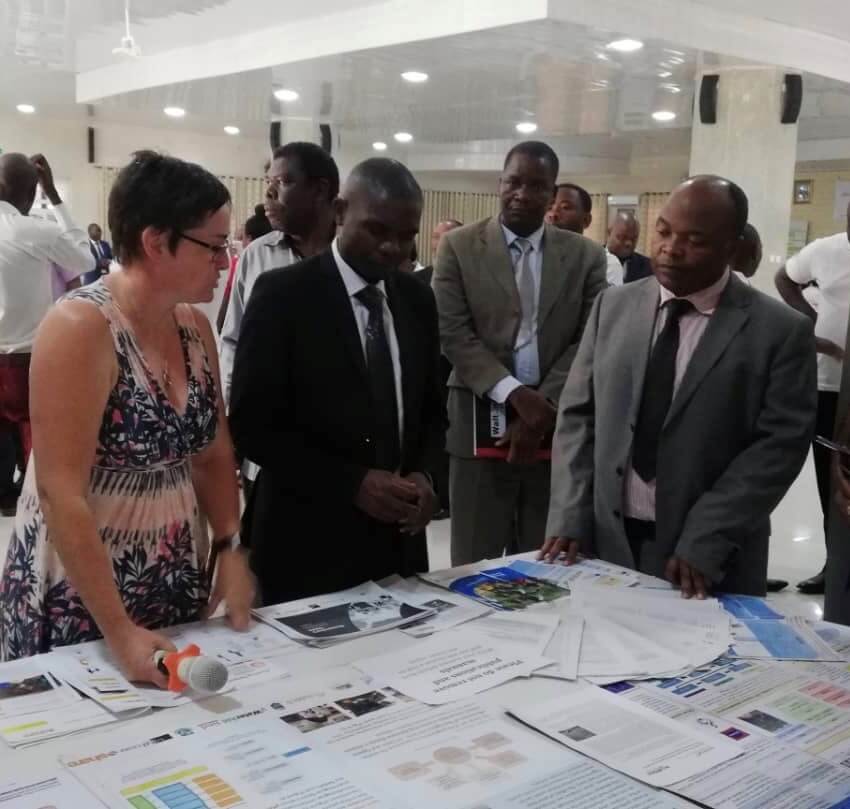By Taonga Mwapasa Kumwenda
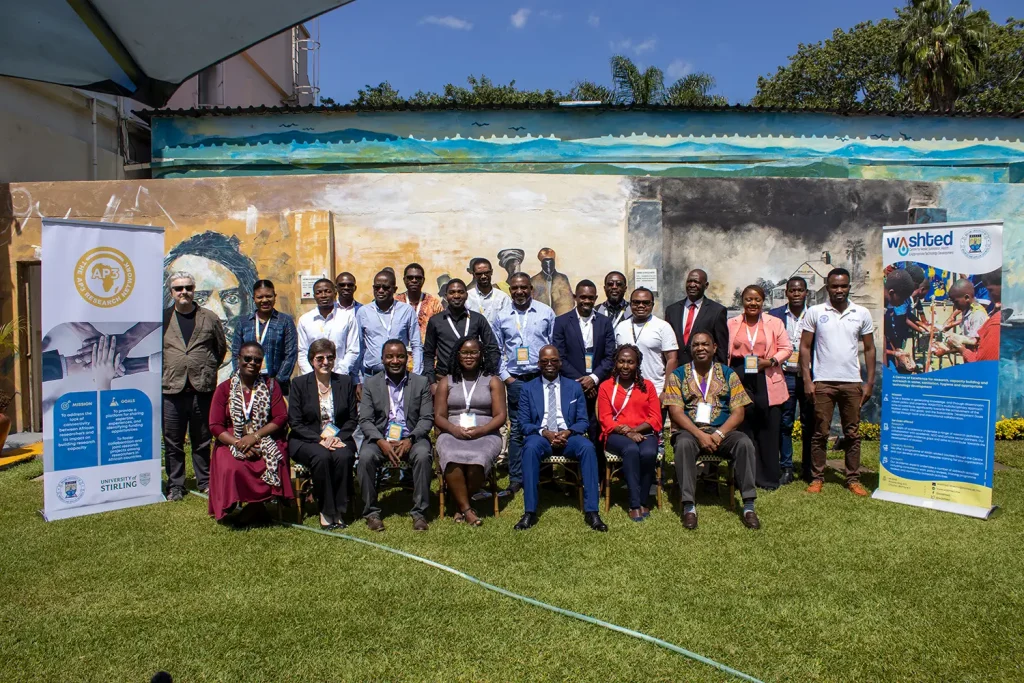
The inaugural symposium of the African Plastic Pollution and Planetary Health (AP3) Research Network was a significant event that brought together leading researchers in the field of plastic pollution and planetary health from across Africa. Hosted by the Malawi University of Business and Applied Sciences (MUBAS) through the WASHTED research centre, the two-day symposium took place on April 23-24, 2024, marking a critical step in fostering collaboration, knowledge transfer, and engagement among African researchers. The symposium was attended by international researchers from Ghana, Kenya, Zimbabwe, ESwatini, South Africa, and the United Kingdom, as well as local researchers from Mzuzu University, Lilongwe University of Agriculture and Natural Resources (LUANAR), University of Malawi (UNIMA), Malawi University of Science and Technology (MUST), the Malawi Liverpool Wellcome Programme (MLW), and MUBAS.
Day 1: Setting the Stage for Collaboration
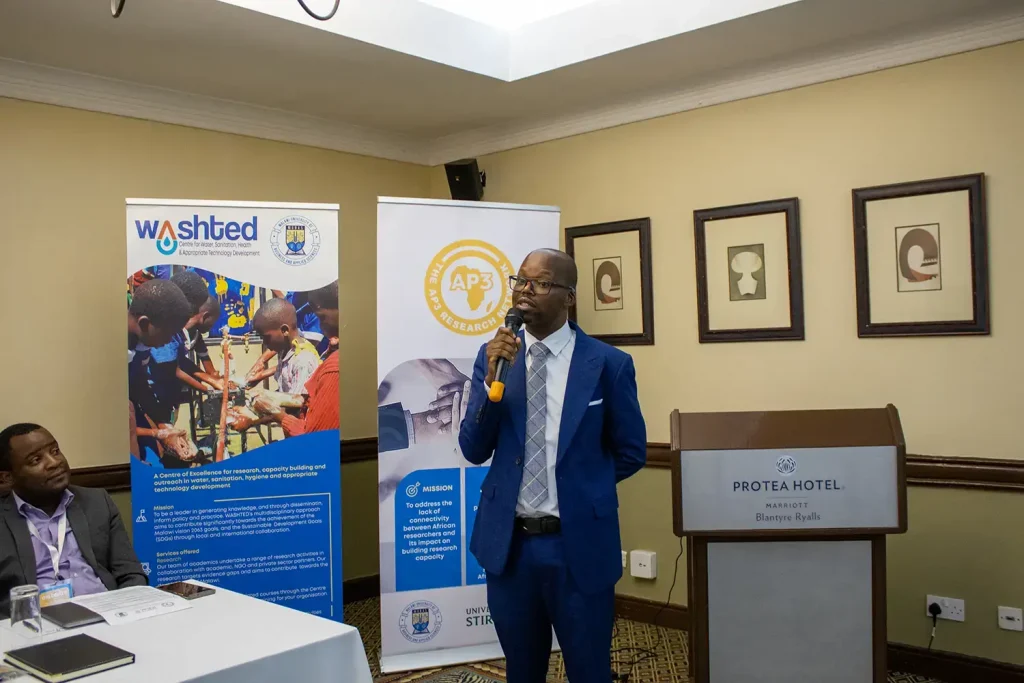
The symposium kicked off at the Protea Ryalls Hotel in Blantyre, Malawi, with welcoming remarks from the Head of the Environmental Health Department at MUBAS. This was followed by an introduction to the AP3 Research Network by the AP3 Malawi lead, Dr Kondwani Chidziwisano, who outlined the network’s aims and objectives, emphasizing the importance of collaborative efforts to tackle plastic pollution and promote planetary health.
Highlights of the first day’s presentations included:
- Professor Richard Quilliam, who provided an insightful background on the inception of AP3, stressed the need for a united approach to address plastic pollution in Africa.
- Dr Suzan Oelefse shared on evidence-based strategies for reducing plastic waste in South Africa
- Dr. Sizwe Mabaso described the status of plastic waste generation and management in the Kingdom of Eswatini.
- Dr. Andy Safalaoh then highlighted the impact of plastic pollution on animal health, particularly livestock, by sharing findings on the prevalence of plastics among goats at Malawi markets.
- Dr. Chagunda Mapereka shared the energy-generating potential from municipal solid waste, particularly plastic waste.
- Mrs. Sika Abrokwah from Ghana emphasized the importance of introducing a behavioural dimension to single-use Use Plastics in Africa
- Ms Melvine Otieno shared on the need to mobilise civil society for a change in plastic pollution and planetary health.
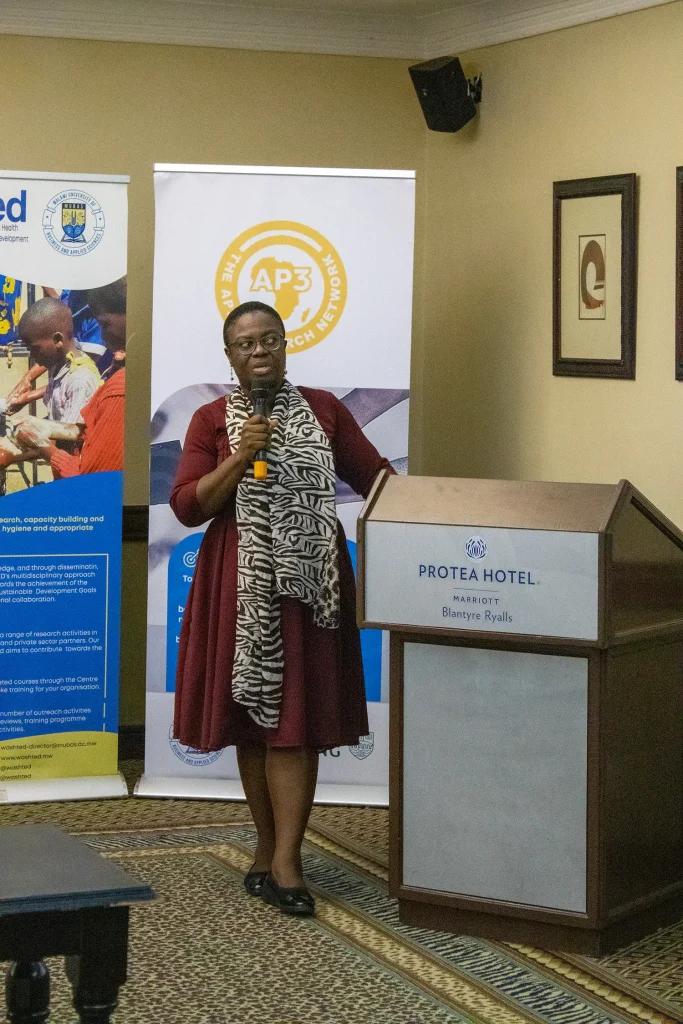
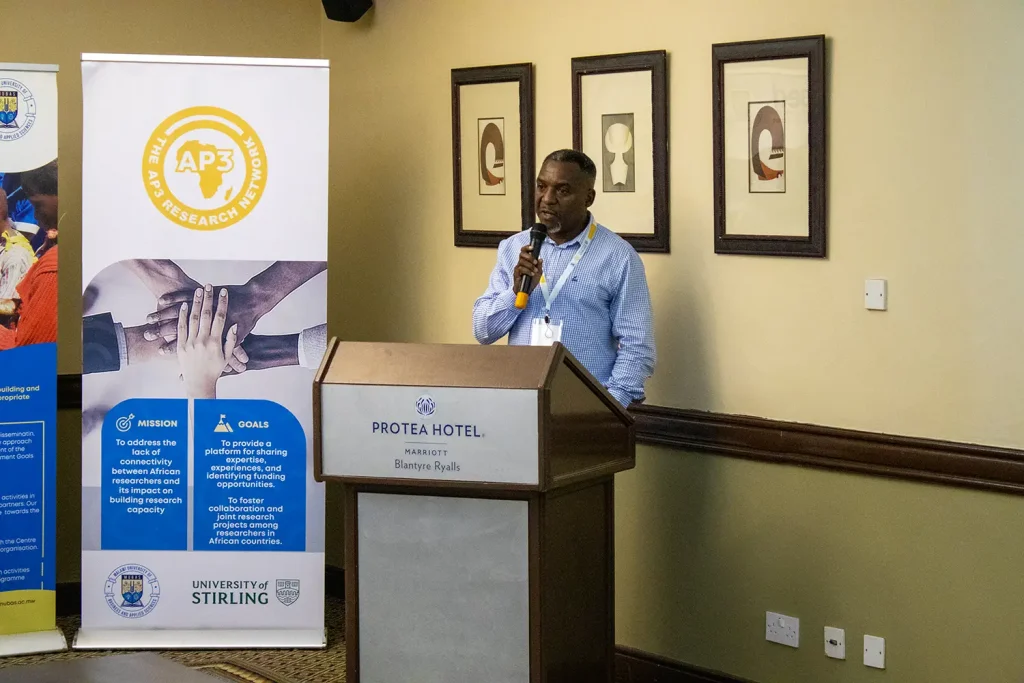
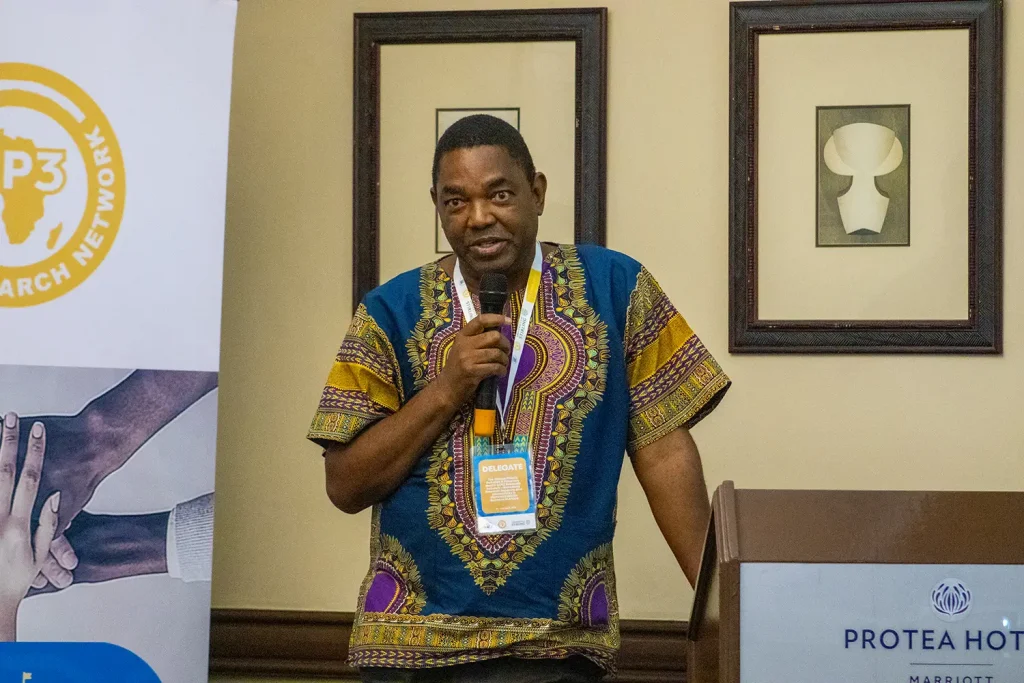
Some of the delegates making their presentations during the symposium
The day ended with a dinner session, providing delegates an opportunity to engage and
network in a more informal setting.
Day 2: Brainstorming Solutions and Strengthening Networks
The second day of the symposium was held at the MUBAS campus, starting with an insightful presentation by Dr. Willis Gwenzi, who highlighted the challenges and opportunities in plastic research in Africa. In a notable gesture, Dr Gwenzi gifted a book he
authored “Emerging Contaminants in the Terrestrial-Aquatic-Atmosphere Continuum: Occurrence, Health Risks, and Mitigation” for the MUBAS library, which was received by Dr Chidziwisano.
The remainder of the day was dedicated to brainstorming solutions for five key issues
identified during the symposium:
- Sourcing funding and equipment for AP3 initiatives.
- Addressing the lack of data among African researchers within the AP3 network.
- Supporting early-career researchers in AP3.
- Strengthening collaborations among AP3 members.
- Other considerations for AP3 .
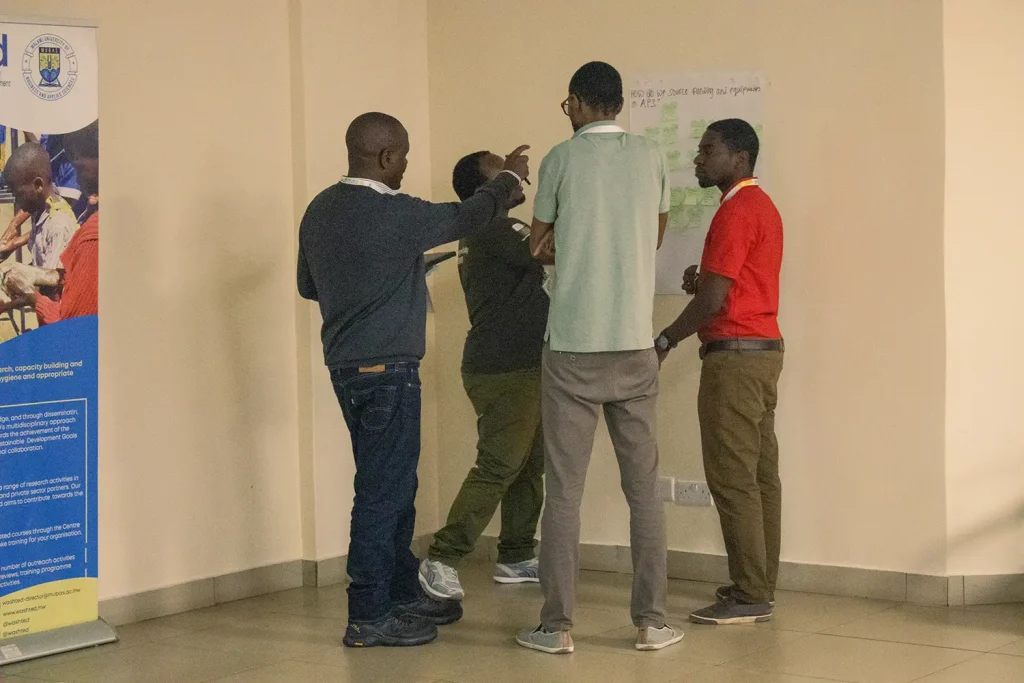
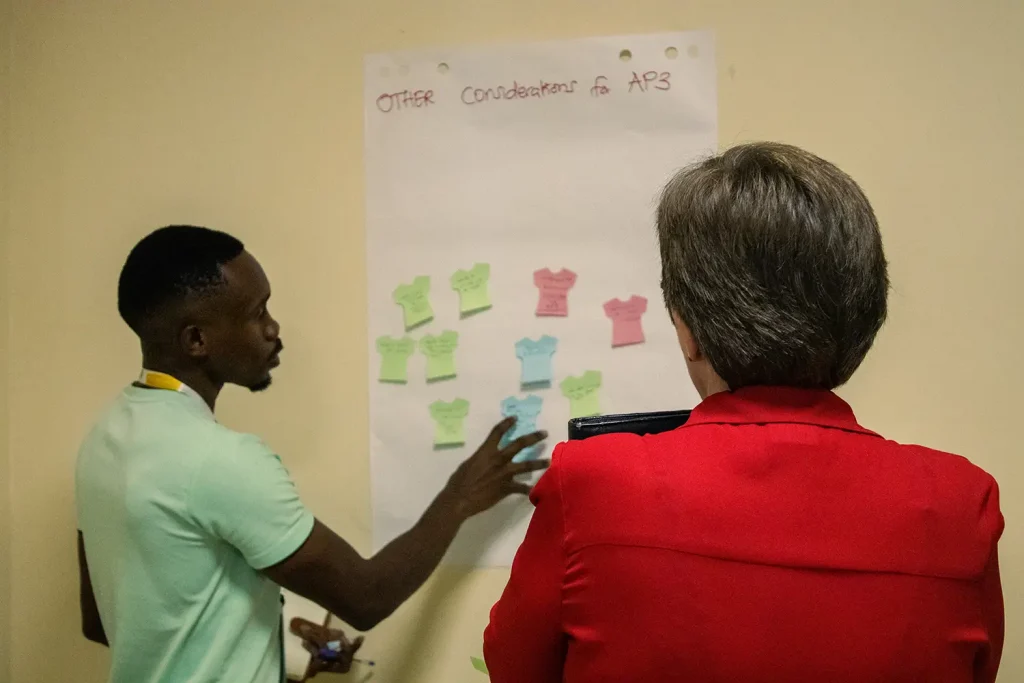
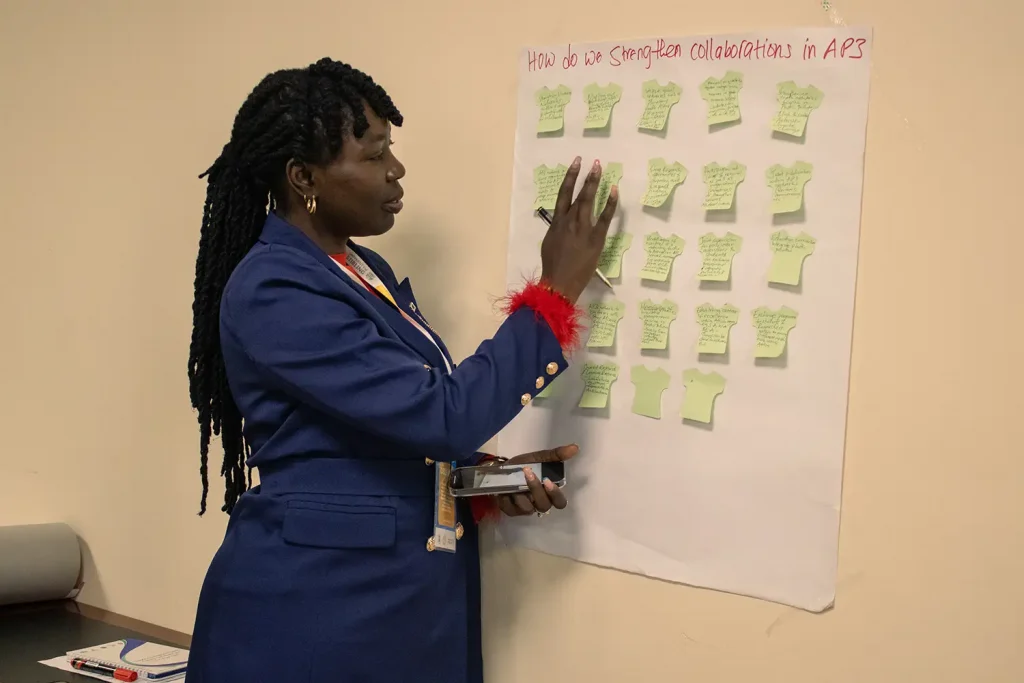
Using the community café method, delegates formed small groups to discuss these issues, rotating to ensure a comprehensive exchange of ideas and perspectives. This interactive session was crucial in developing actionable strategies and fostering a sense of community among the researchers.
The symposium concluded at midday with a call to action for delegates to leverage the AP3 network and collaborate continuously to keep the network functional and impactful. As a token of appreciation, delegates received reusable bags from the partner institution, the Malawi Liverpool Wellcome Programme.
A Promising Future for Plastic Pollution and Planetary Health Research
The AP3 Research Network, instituted by the University of Stirling in conjunction with MUBAS, marks a promising step towards addressing the pressing issue of plastic pollution and planetary health in Africa. The inaugural symposium not only facilitated valuable discussions and collaborations but also set the stage for ongoing efforts to mitigate plastic pollution and promote planetary health. With continued engagement and support, the AP3 network aims to drive significant progress in this critical area, benefiting communities and ecosystems across the continent.
